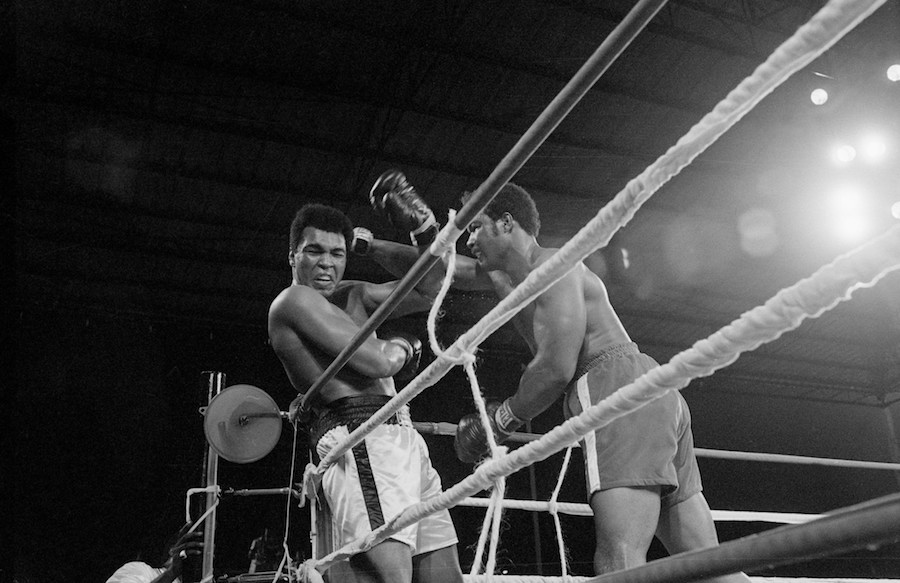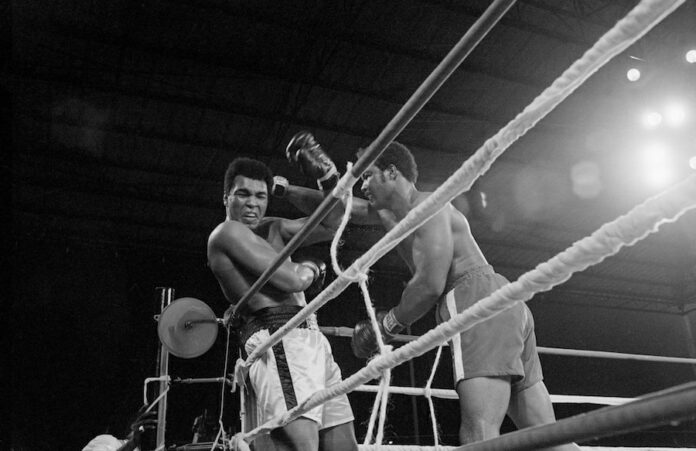
How Ali’s views still exist in today’s multicultural society
 Muhammad Ali is known for his achievements and actions both inside and outside of the boxing ring. What he said outside of the ring remains the most criticized part of his life. With his fame, Ali chose to publicize and fight for his views. These views often derive from his mentor Malcolm X, who is well known for his advocacy in the 1960s.
Muhammad Ali is known for his achievements and actions both inside and outside of the boxing ring. What he said outside of the ring remains the most criticized part of his life. With his fame, Ali chose to publicize and fight for his views. These views often derive from his mentor Malcolm X, who is well known for his advocacy in the 1960s.
In the 1970s, Ali’s views changed significantly. He stopped advocating for racial separation, instead encouraging people to come together. But he will forever be remembered for his more controversial views, since they have had the most influence on modern political thought.
Ali was a polarizing figure known for his confrontational attitude against racial integration and white domination while at the same time supporting black separatism.
Ali’s views mostly derived from his foundational belief in the natural separation of the races. In an interview, Ali said, “There ain’t nothing wrong with being with your own kind. What’s wrong with me wanting to be with my kind?” In a modern context, his views would receive a lot less praise than they did over 50 years ago.
His words seem to go against the now prevailing narrative of diversity, which consistently advocates for people of different races and ethnicities to live together. This coexistence, to the many people who believe in multiculturalism, is the best method in ending racism.
We may wonder how Ali could be fighting against racism and white dominance if he advocated for voluntary separation of different races. To clarify, he was against racial integration, which entails the coexisting and inclusive nature of modern multicultural society. Cultural differences are celebrated, maintaining the belief that people can live peacefully with one another.
Being against integration, Ali favored what Malcolm X called racial separation, which is now associated with white nationalists who want to create their own state in the potato fields of Idaho. Ali’s perspective lay in the belief that putting people of different races together didn’t work. He ultimately believed that, if people voluntarily separated themselves from each other and worked to achieve self-sufficiency and self-empowerment, it would solve the problem of racism. This type of society based on black pride does not particularly require any participation from sympathetic white liberals.
With the current emphasis on multiculturalism, this type of language is not necessarily unacceptable, but often considered irrational and impulsive. In the moment we are now in in the United States, it’s clear that having a desire to live exclusively with your “own people” is now often considered intolerant and unintelligent.
Yet people still question the extent to which Ali’s racial views have been absorbed in the context of today’s multicultural society. We may also wonder how Ali and Malcolm X became symbols of black liberation from white oppression through voluntary racial separation by the same people who advocate for diversity.
Many of Ali’s and Malcolm X’s ideas still exist in spirit within the ideology of diversity. This may sound contradictory, but modern society does not eliminate racial distinctions. Race is firmly entrenched in our multicultural society. Rather than being color-blind and treating everyone equally, modern advocates for diversity make sure that racial distinctions are noted. The clear differentiations between races are then used as a means of creating inclusivity and tackling racism. Although these views are not directly associated with physical racial separation, they are connected very much to Ali’s belief in maintaining strong distinctions in culture, identity and skin color.
Instead of using these racial distinctions to separate people, multiculturalists hope that people can come together through proper understanding of racial issues. This includes understanding who are the oppressed and who is the oppressor and understanding why racial prejudices exist and how they have come about.
Created in this understanding of the world are differentiations between the oppressed, allies, oppressors and race traitors, terms we now often use in our daily language. It’s not uncommon to hear arguments that there have been 400 years of white oppression or that racial color-blindness is a form of racism. That is why there is still a debate over whether white liberals can be treated as allies in the social justice movement. Opinions are divided over whether they can help in the struggle against oppression.
The people today who are advocating for multiculturalism may not be trying to advance a society physically separated by race, but in spirit they maintain many of Ali’s ideas that race should be distinguished and recognized.
Written by: Justin Chau — jtchau@ucdavis.edu
Disclaimer: The views and opinions expressed by individual columnists belong to the columnists alone and do not necessarily indicate the views and opinions held by The California Aggie.





